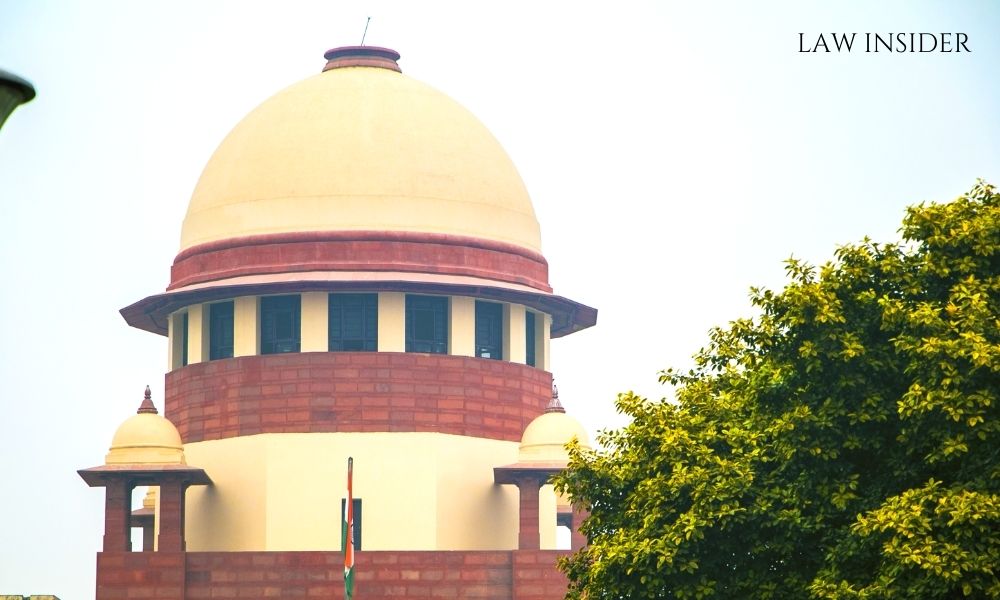LI Network
Published on: 13 August 2023 at 16:45 IST
In a significant ruling, the Supreme Court has endorsed the Rajasthan High Court’s verdict that B.Ed. (Bachelor of Education) degree holders are not qualified for appointments as primary school teachers.
The bench, comprising Justice Aniruddha Bose and Justice Sudhanshu Dhulia, established that the fundamental right to primary education in India, as enshrined in Article 21A of the Indian Constitution and the Right to Education Act of 2009, not only encompasses ‘free’ and ‘compulsory’ education for children under 14 but also emphasizes the need for ‘quality’ education.
The Court reasoned that B.Ed. graduates lacked the foundational pedagogical skills necessary for instructing primary classes and, therefore, couldn’t ensure the provision of ‘quality’ education to young learners.
Chronology of Events
The legal dispute centres around a notice dated June 28, 2018, released by the National Council for Teacher Education (NCTE).
This notification rendered B.Ed. degree holders eligible for primary school teacher positions (classes I to V). Despite this, when the Rajasthan State Board of Secondary Education advertised the Rajasthan Teacher Eligibility Test (RTET), it excluded B.Ed. degree holders from the list of eligible candidates.
The State Government’s action was contested before the Rajasthan High Court.
Additionally, a group of petitioners, who held diplomas in Elementary Education (D.El.Ed.), the sole required teaching qualification for primary-level educators, challenged the inclusion of B.Ed. graduates.
The State of Rajasthan supported this second set of candidates.
The Rajasthan High Court nullified the NCTE notification, ruling that B.Ed. holders were unqualified for primary school teaching positions.
Supreme Court Proceedings
Senior Advocates PS Patwalia and Meenakshi Arora represented the B.Ed. qualified candidates before the Supreme Court.
They argued that the High Court had failed to recognize that the notification was a policy decision made by the NCTE subsequent to directives from the Central Government.
They asserted that the High Court’s interference with the Central Government’s policy decision was inappropriate.
Senior Advocates Kapil Sibal and Dr. Manish Singhvi advocated for the diploma holders and the State of Rajasthan, respectively.
They contended that the NCTE, as an expert body, should have independently arrived at a decision based on objective realities, rather than merely adhering to the Central Government’s directions.
Assistant Solicitor General (ASG) Aishwarya Bhati and ASG Vikramjeet Banerjee, representing the Union of India, contended that the High Court order disregarded the powers granted to the Central Government under both the Act and the NCTE Act.
Quality Education as a Fundamental Right
In its ruling, the Supreme Court retraced the evolution of the right to free and compulsory education for children in India, highlighting its status as an integral aspect of the constitutional vision.
The Court emphasized that ‘free’ and ‘compulsory’ elementary education would be inconsequential if it did not encompass ‘meaningful’ education.
The Court stressed that elementary education must be of ‘quality’ and substance, not just a mere formality.
The Court emphasized that Article 21A of the Constitution and the Right to Education Act underscored specific norms and benchmarks to ensure meaningful and ‘quality’ education at elementary schools.
The Court declared, “The pivotal factor for ensuring ‘quality’ education in a school is a proficient educator. Compromising on teacher qualifications would inevitably lead to a compromise on educational ‘quality’.”
The Court highlighted that Section 23 of the RTE Act empowered the Central Government to relax the minimum qualifications stipulated by the ‘academic authority’ under specific circumstances and for a defined period.
The ‘Academic Authority,’ in this context, refers to the NCTE, which issued a notification on August 23, 2010, outlining necessary teacher qualifications at the primary and upper primary levels. Notably, until the impugned notification of June 28, 2018, B.Ed. was never listed as an essential qualification for primary school teachers.
Importance of Pedagogical Training
The Court emphasized that a teacher in primary school, as per the NCTE, was required to possess a diploma in elementary education (D.El.Ed.), and not any other educational credential like B.Ed.
The D.El.Ed. program specifically equips candidates to instruct primary-level students through specialized pedagogical training.
Contrarily, a B.Ed. holder is trained to instruct secondary and higher secondary level students, not primary-level learners.
The Court pointed out that the inclusion of B.Ed. as a qualification for primary school teachers would consequently compromise the ‘quality’ of primary education.
Recognizing the pedagogical shortcomings of B.Ed. courses for primary education, the Court maintained that any compromise on educational ‘quality’ at the primary level contradicted the mandate of Article 21A and the RTE Act.
The Court concluded that primary education’s value is unparalleled and proceeded to annul the NCTE’s decision to include B.Ed. as a qualification for primary school teachers.
The Court characterized this decision as “arbitrary, unreasonable, and devoid of a connection with the objectives of the Right to Education Act.”
Judicial Review of Policy Decisions
Regarding the Central Government’s argument against intervening in policy decisions, the Court held that if a policy decision contradicted the law and was irrational, judicial review was imperative.
The Court maintained that the decision to include B.Ed. as a qualification for primary-level teachers was against the spirit of the Constitution and the Right to Education Act, rendering it susceptible to judicial review.
Ultimately, the Supreme Court deemed the NCTE’s decision to include B.Ed. qualifications for primary school teachers as procedurally flawed, not independently deliberated, and contrary to the law. Consequently, the NCTE’s notification was invalidated, and the Rajasthan High Court’s judgment was upheld.

